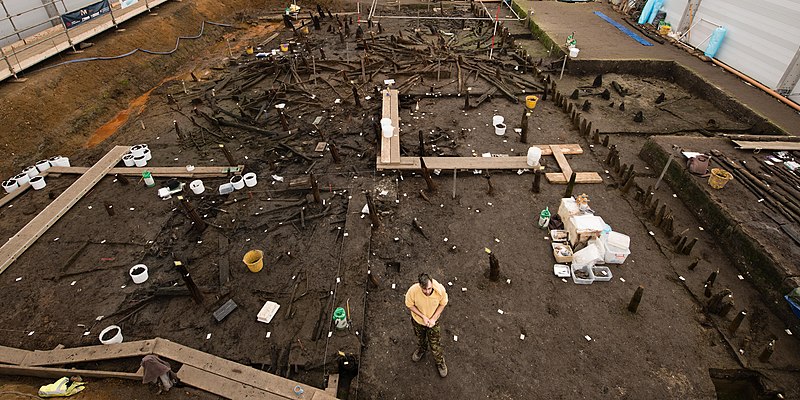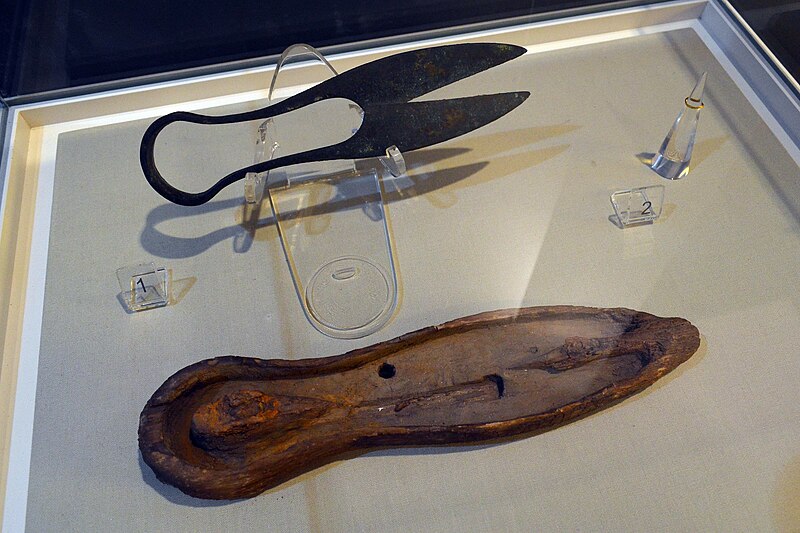The fenland around Peterborough is a liminal place, a world of still, deep water, rustling reeds, flat land and a big sky. A place full old legends of the Lantern Man and the Toad Man and the spectral dogs known as Black Shuck. A place full of memories, of hidden secrets…
In 1999, a major archaeological find was discovered in the fens at Must Farm–a village from the latter part of the Bronze Age, circa 850 BC. With each subsequence excavation on the site, new finds and new mysteries arise, giving rise to the name ‘Britain’s Pompeii.’
Must Farm consists of four large round houses (there were likely many more but quarrying has destroyed part of the site) and a wooden entrance building, all of them on raised stilts and joined by walkways. A palisade of sharpened stakes surrounded the whole village, perhaps an indication that life in the latter Bronze Age was becoming more inclined to war. And perhaps that might give a clue what happened to Must Farm and its ancient occupants.
The settlement was only about a year old when the whole village was consumed by a devastating fire. Invaders? An unfortunate cooking accident? That we can, as yet, not say. But the conflagration caused the structures to fall forward into the waiting murky waters below, where sections of them were preserved for millennia along with scores of artefacts owned by the Bronze Age people–tri-partite wheels (earliest wheels found in Britain), a pile of spears (perhaps an indication the residents feared attack), swords and axes (one with complete wooden haft) , a beautiful necklace with beads from as far away as Iran, bronze sickles, shears (with a wooden case!), various pots and amazingly, even woven textiles. The strangest find is likely a female skull, which had been worn smooth from constant handling–she might have been regarded as a special ‘ancestor’ whose bones were kept unburied for good luck.
As for the residents themselves, coprolites found on-site indicated they suffered from intestinal parasites–common until modern times. Dog skulls were also found in positions that indicated they may well have been pets as well as working animals. The fire that destroyed the village must have happened very suddenly because one of the cooking pots, still containing the uneaten remains of a type of porridge, was found in the marsh.
If you fancy seeing some of these extraordinary ancient finds, Peterborough Museum will have a selection of them on display in a special new exhibition starting on April 24, 2024.
https://www.newsweek.com/secrets-prehistoric-site-compared-pompeii-revealed-1882385
https://www.bbc.co.uk/news/uk-england-cambridgeshire-68608467

MUST FARM. Photo by Dr Colleen Morgan


Wonderful! I’d like to know how that wooden haft survived in the damp environment.
LikeLike